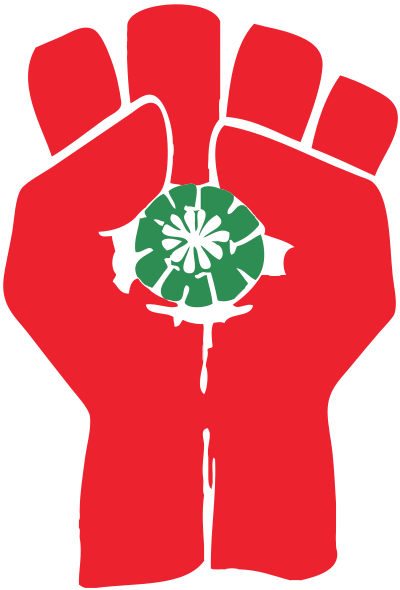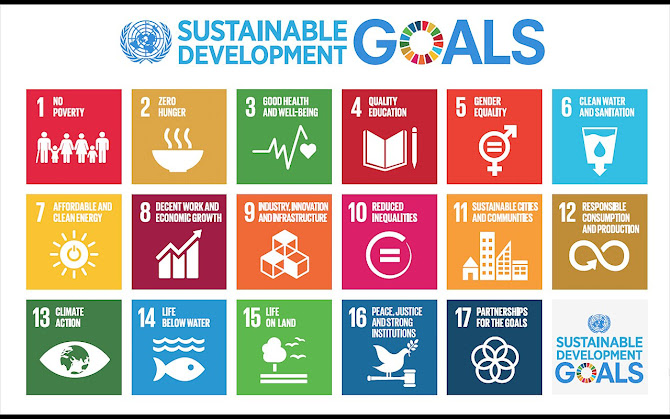The SDGs are inspired by the momentum of the eight Millennium Development
Goals (2000-2015) and came into action in January of 2016. They are
active until 2030. One important step forward is that the SDGs in
comparison to the MDGs are supposed to be fulfilled by every member
of the UN, not only the development countries. The sustainability in
economic, ecologic and social development are only effective on a
global level. Many industrial countries are far behind on these
issues as well and contribute a large amount of emissions, and
pollution of the environment in general.
In the fight for environmental protection and social justice, economic
interests have always been the factor favored by center and right
wing politics. Promises of wealth for all and newer technologies,
which magically solve ecological problems, have always been pretty
lies to secure the continuation of the already established ways.
Autonomous processes of globalization allocate resources through a
poorly regulated market, resulting in a system in which selected few
are in control of most resources.
Social inequality is highlighted with the fact that 85 individuals posses
more wealth than the bottom half of the global population.
The rich have become richer through the historical accumulation of wealth
that is unevenly taxed, exploitation of capital markets (which may or
may not create bubbles such as the housing bubble—where investors
were bailed out by tax-payers at the cost of homeowners), and the
development of intellectual property rights that protect medical
patents, among others.
The rich invest their money not only in the resources itself but also in
for example emission rights, thus creating an inequality in the
environmental sector as well.
Especially cruel and absurd is the crisis management of the wealthy. Every major
player has most certainly staff members specialized in profiting from
crisis. In this specific pandemic crisis Amazon, Microsoft and Apple,
for example, conglomerated around 890bn dollar.
In the following I try to combine the SDGs, the crisis and the gap
between the rich and the poor. The UN secretary-general António
Guterres launched a new plan to counter the potentially devastating
impacts of the pandemic and urges global solidarity.
Suppressing the spread of the virus itself is the most obvious goal. In addition
there must be financial and technical help from the more developed
countries to those countries in which the health care system is not
as prepared for such a task. The new multi-partnered trust fond is an
important financial aid for securing livelihoods and avoiding hunger
around the world. According to the UN International Labor
Organization five to 25 million jobs will be eradicated and the world
will loose 860 billion to 3.4 trillion dollar in labor income.
A reoccurring sad realization is that every crisis has its winners and
losers. And it´s always the same people loosing the most. Call them
global south, agricultural based economies or less industrialized
nations. For me it´s clearly the poor who suffer the most. If you
want to tell me that it is different with covid, I advise you to wait
a few month more, when the vaccines have been distributed in the west
and the economic consequences exacerbated deeper.
When rebuilding the economy after this great cut, we should use this as an
opportunity to build more sustainable and inclusive societies and
shape the economy just and fair.
Oxfam,
(2014). Even it up: Time to end extreme inequality. Great Britain:
Oxfam.
Sustainable
development goals and inclusive development Joyeeta Gupta1,2 •
Courtney Vegelin3
https://www.ft.com/content/844ed28c-8074-4856-bde0-20f3bf4cd8f0


